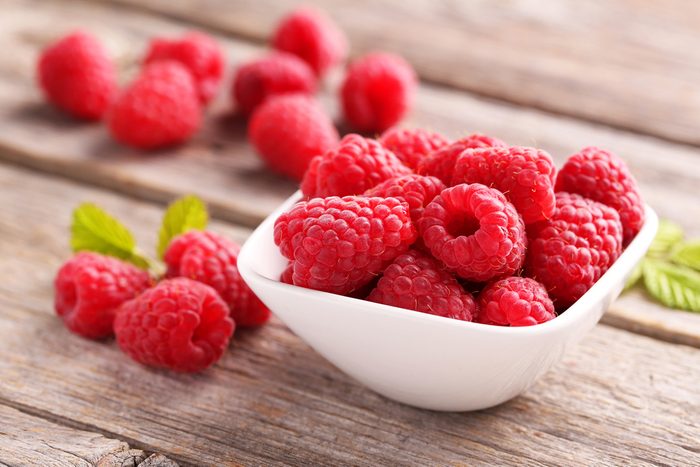
1. Raspberries
These delicate, fragile berries are bursting with colour and flavour. At 64 calories per cup, raspberries aren’t just a tasty treat-they’re also a good source of vitamin A, vitamin C and fibre. These bite-sized fruits come in more colours than classic red-try yellow, purple or black varieties to change it up. Bringing fresh raspberries home? Store them in the fridge or better yet, eat them right away because these juicy gems don’t keep for long.
Ready for dessert? Go beyond raspberries and cream and try our Double Raspberry Sorbet or Chocolate Raspberry Brownie Bites.
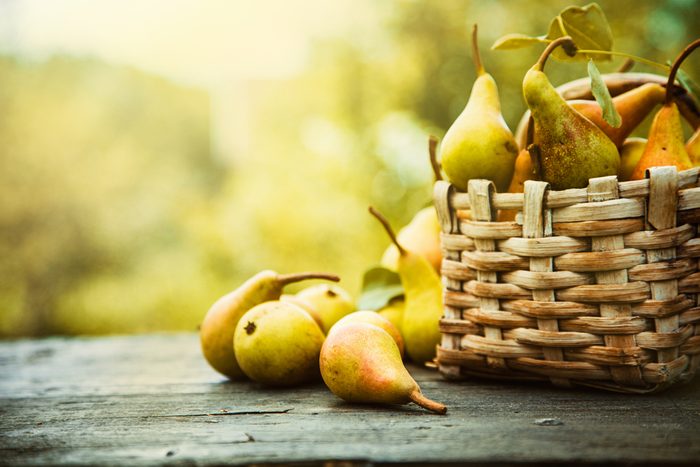
2. Pears
In the mood for a sweet snack? Share a pear. As a relative of the rose, the pear not only smells sweet, but it tastes that way, too. This fall harvest fruit’s natural sugars will satisfy your candy cravings without giving you a guilty conscience. One medium-size pear has about 100 calories. Plus, they are full of fibre and packed with nutrients, such as vitamin C, potassium and folacin (a B-vitamin).
There are hundreds of pear varieties, but the Bartlett is the most common. For maximum freshness, store your pears in the fridge and use them within a few days. To find out just how versatile this fall fruit can be, check out our best healthy pear recipes.
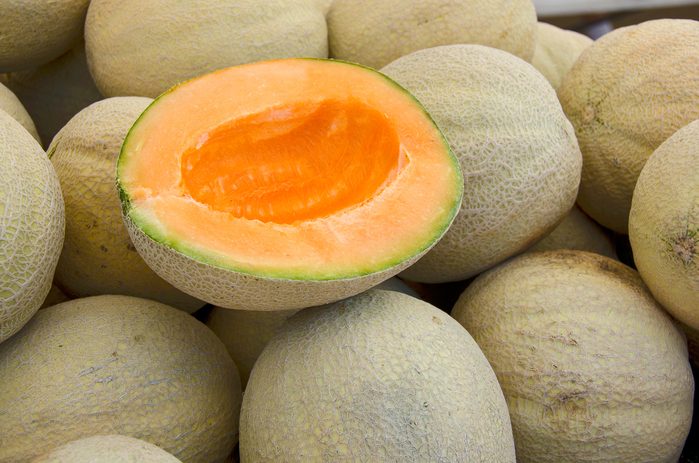
3. Muskmelon
The muskmelon is more commonly known as cantaloupe, even though there are subtle differences. Cantaloupes have deep grooves and scaly skin while muskmelons have a netted surface.
This mild, sweet flavoured melon is a low calorie snack with the nutritional benefits of vitamin A, vitamin C, potassium and folacin. To find the ripest fruit, just follow your nose. It should have a sweet, spicy scent. Tap the melon with your knuckles to hear if it is dense. If it sounds hollow it might not have enough moisture inside.
Add locally grown melons to your meals by trying our nine things to do with melons.
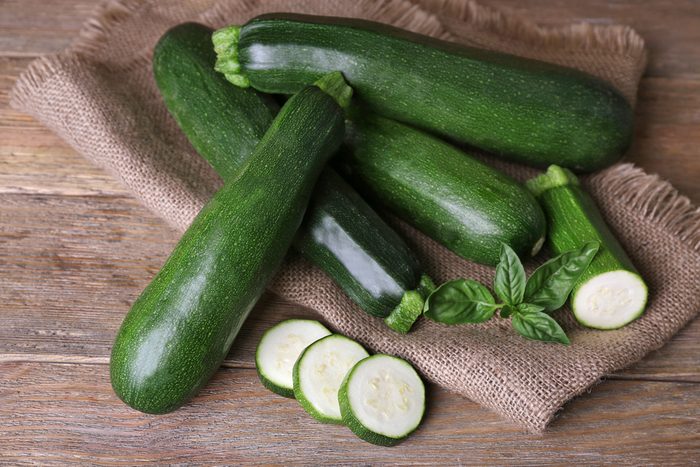
4. Zucchini
Did you know one cup of chopped zucchini is only 20 calories? It also packs 2 g protein, vitamin A and vitamin C and is low in fat. This popular summer squash has a mild, nutty flavour and is also quite versatile-you can even include it in dessert, like we did in our recipe for Fruity Vegetable Muffins.
When choosing a zucchini, find one that’s small, firm and has no bruises or soft spots, especially near the stem. Let bright colour guide you to the best pick-the greener, the better. You can store your zucchini in the fridge for up to five days, but make sure you wrap it in plastic so it doesn’t dry out.
Wondering how to include this tender vegetable in your next meal? Try these 10 ways to cook zucchini.
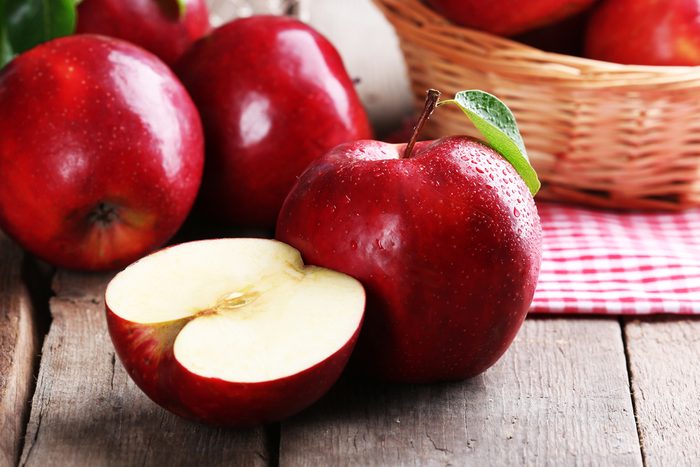
5. Apples
September is best known for back-to-school, which is so often represented with images of a shiny red apple. But don’t just send apples for the teacher; pack one for yourself too. This low-fat, high-fibre fruit is full of vitamin C, making it the perfect portable snack. And as a bonus, one medium-size apple is only about 95 calories.
When choosing your fruit, pick one that is firm and avoid ones that have wrinkles or bruises. Apples keep well in the refrigerator for up to one month, but remember the saying, “one bad apple can spoil the bunch.” Remove any overripe apples immediately to preserve the rest of your produce.
Get an apple a day in your diet with our best healthy apple recipes.
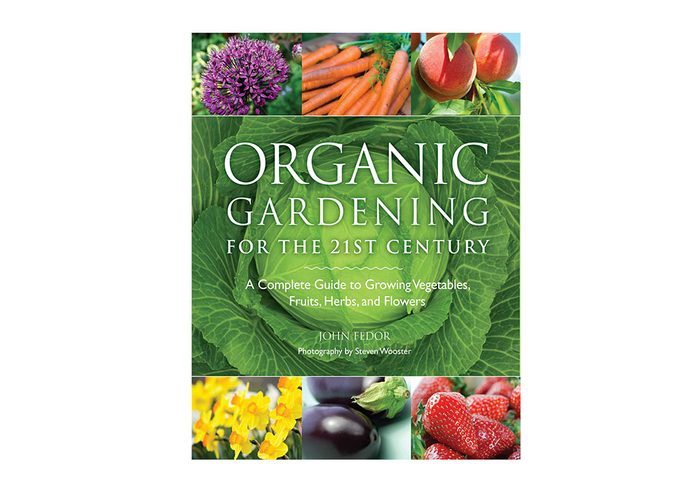
Grow your own seasonal feast
Create a spectacular garden of vegetables, fruits, herbs and flowers while you care for your health and the environment with help from Organic Gardening for the 21st Century. This groundbreaking resource covers everything from compost to crop rotation along with the latest scientific knowledge on how to find, and cultivate plants the natural way.
